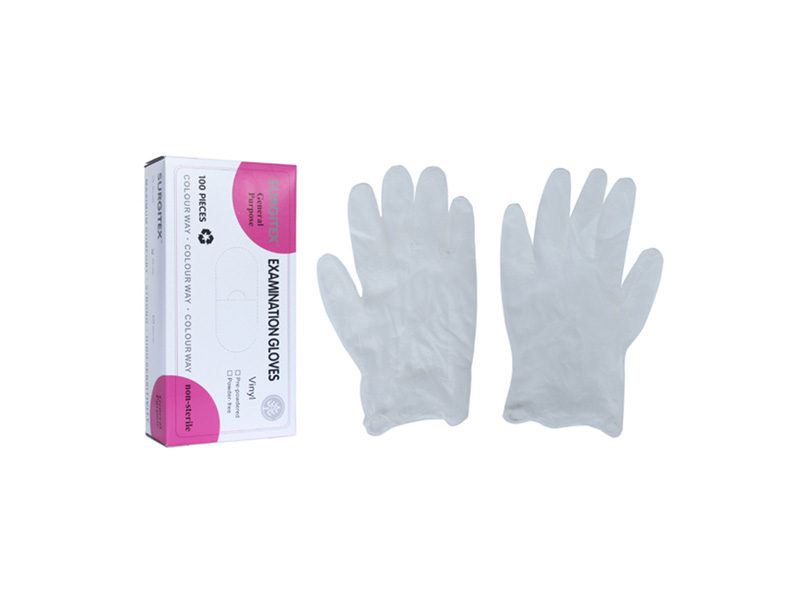Environmental impact of non-sterilized vinyl examination gloves
Because of their durability, versatility and affordability, non-sterilized vinyl examination gloves have become a popular choice for medical professionals. However, as the use of these gloves has increased, concerns have arisen about their environmental impact. One of the main questions being asked is whether non-sterilized vinyl examination gloves cause plastic contamination. In this article, we will explore the environmental impact of using non-sterilized vinyl examination gloves and discuss potential solutions to mitigate this impact.

Non-sterile vinyl examination gloves are made of synthetic materials and are designed for use in medical settings where sterilization is not required. They are commonly used in dental offices, nursing homes and other medical facilities. These gloves offer several advantages over other types of gloves, including low cost, comfort and ease of use.
Despite these benefits, non-sterilized vinyl examination gloves are not without their drawbacks. One of the main issues is their impact on the environment. Non-sterile vinyl examination gloves are not biodegradable, which means they can take hundreds of years to decompose in landfills. Since these gloves are single-use, disposing of them can quickly lead to a lot of waste.
In addition to creating landfill waste, non-sterilized vinyl examination gloves end up polluting our oceans and waterways. Often not properly disposed of, these gloves can easily end up in rivers and streams, harming aquatic life and causing plastic pollution.
Some experts suggest that using alternative materials can help reduce the environmental impact of non-sterilized vinyl examination gloves. Nitrile gloves, for example, are a popular alternative to vinyl inspection gloves and are considered more environmentally friendly. Nitrile gloves are made from plant-based materials and are biodegradable, making them a more sustainable option.
Another possible solution is to implement a recycling program for non-sterilized vinyl examination gloves. Recycling these gloves can help reduce the amount of waste they generate and prevent them from ending up in landfills or the ocean. However, this solution would require significant investment and infrastructure to be effective.
Ultimately, the environmental impact of non-sterilized vinyl examination gloves depends on how they are used and disposed of. While these gloves may be a more affordable option, their long-term impact on the environment cannot be ignored. Therefore, healthcare professionals must consider alternative materials and appropriate disposal methods when using non-sterilized vinyl examination gloves.
In conclusion, non-sterilized vinyl examination gloves are a popular choice for healthcare professionals because of their affordability and versatility. However, as their use has increased, so have concerns about their environmental impact. Disposal of these gloves can result in significant waste and plastic contamination, so it is critical to consider alternative materials or recycling programs. By taking steps to reduce the environmental impact of non-sterilized vinyl examination gloves, we can ensure that healthcare practices remain sustainable and responsible. For more detailed information, feel free to contact us!



